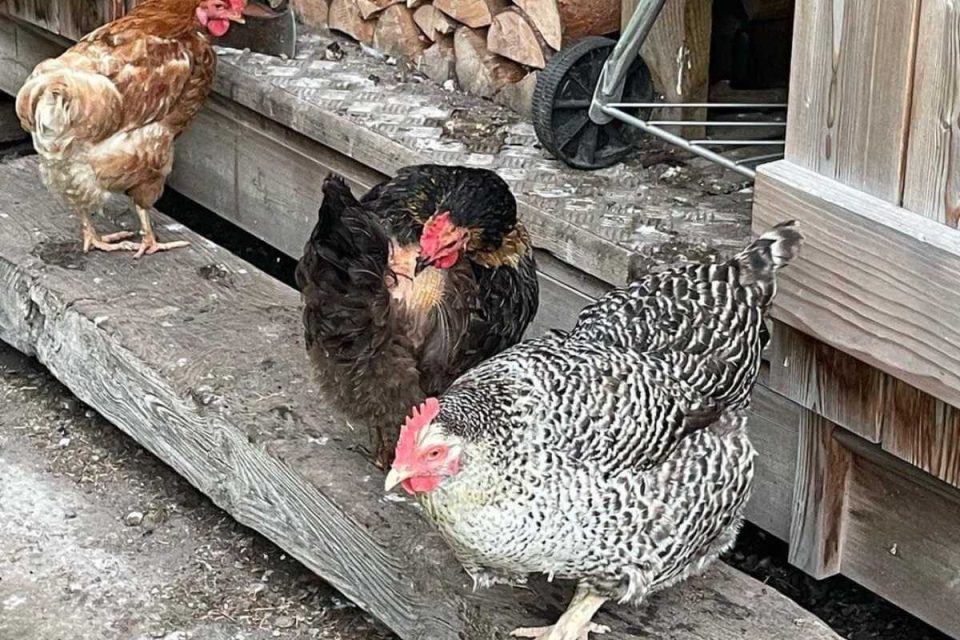Today I want to talk about the importance of connectedness for health. Many of you will already know I’m a huge fan of Lynbreck Croft and the two farmers who run it, Lynn and Sandra. Lynbreck Croft is a regenerative farm located in the Cairngorms National Park in the Highlands of Scotland. And I met Lynn and Sandra there last year while on their “how to farm” residential course. More recently, my partner Antonia and I went back to see them, and while we were there, we got talking about the idea that diversity promotes resilience.
Specifically, we were discussing food diversity, soil diversity and biodiversity. But we also discussed how many of each species you should have on a farm. The general consensus was anything above two. Of course, cattle need to be in herds, but no animal should be alone. Now that’s partly due to herd mentality in order to stay safe, but it’s also about the importance of social connection. And guess what? It’s just as essential for us humans!
The Blue Zones Project
This isn’t exactly news – we’ve known about the importance of social connectedness for quite some time thanks to Dan Buettener and his brilliant work with the Blue Zones Project. The Blue Zones are five areas of the world – Japan, Italy, California, Costa Rica and Greece – where people are healthiest and live the longest. In fact, these areas have the highest concentrations of centenarians (people aged 100 years and over). Buettener’s research has identified nine reasons why this is, referred to as the Power 9, and there are three that I find particularly interesting:
- Finding the right tribe
- Loving your family first
- Having a sense of belonging
Connectedness can have a profound effect on wellbeing. One thing the people in Blue Zones do is maintain good familial relationships and other groups. For example, the Okinawans have a moai: a perpetual support network of five lifelong friends. The study also showed these areas actively strengthen their bonds by doing things like catching up over a glass of wine at the end of each day. So I want you to take a moment to reflect. Do you have good social connections? Is there anything you could do to nurture, develop or improve them?
The Science Behind Social Connection
Recently, scientists discovered that strong relationships actually lengthen our telomeres. In the simplest of terms, telomeres are like tiny caps on the end of our chromosomes that protect our DNA – similar to the tip of a shoelace. When they degrade, our DNA is more susceptible to damage, which can accelerate ageing and risk of disease. Now, there’s been a lot of research around what shortens telomeres, such as smoking and environmental pollution. However, not a lot has gone into the things that lengthen them – like social connection/connectedness.
Building Your Relationships
Those of you who are familiar with my content will know I’m a big on proactive and preventative health. And we’re just starting to appreciate that social connection could be just as important as sleep; energy; a balanced diet. I’ve just returned from a trip with some very old friends (about 30 years!), and we had a great time. We tried some new experiences, shared how we were feeling about things, and some of the challenges we’re facing. There was a great deal of silliness and laughter, and all seven of us came away feeling better than when we’d arrived.
The reason I’m telling you this is because I want you to feel inspired to take a look at your relationships and connectedness. Is there anything you can do to foster another relationship or enhance one you already have? Perhaps you could be more involved in your community or travel – situations where you’re likely to meet new people. All of this can have a really positive impact on our health.
Wellbeing Resources
Check out our free posture guide for desk workers. Many of us frequently sit or stand at a desk, our posture guide will show you how to set up your workstation, stretches to do to avoid getting tight, uncomfortable muscles, and how to correct your posture to stay relaxed and energised whilst at work.
Interested in finding out what your health IQ is? Take the Health IQ test to receive a free 39-page report built around our six signals: sleep, mental health, energy, body composition, digestion, and fitness.


